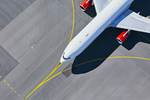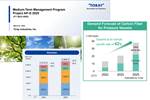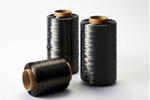Surcar Airlines selects ZeroAvia hydrogen-electric engines to power flights in the Canary Islands
Surcar plans to retrofit Twin Otter seaplanes with the ZA600 powertrain, which will use compressed gaseous hydrogen stored in composite pressure vessels.
Photo Credit: ZeroAvia, Surcar Airlines
(Hollister, Calif., U.S.) has signed an agreement to provide its ZA600 hydrogen-electric engines to new operator Surcar Airlines (Spain) as it looks to bring green flights to the Canary Islands.
Backed by investors including the Danish carrier Nordic Seaplanes, the newly launched airline plans to use Twin Otter seaplanes retrofitted with the ZA600 powertrain on sightseeing tours. Surcar Airlines is committed to the electrification of aviation to enable zero-emission flights in the Canary Islands. The company says it will begin operations with conventionally powered aircraft; the next step will be switching to hydrogen-electric engines to remove all in-flight emissions, providing additional reductions in climate and air quality impacts.
ZeroAvia is on track for certification over the next two to three years of the ZA600 600-kilowatt engine for 9-19 seat aircraft and has a with De Havilland (Toronto, Canada), type certificate holder of the Twin Otter.
ZeroAvia of 10 test flights of a prototype of its ZA600 for the aboard a Dornier 228 aircraft at its U.K. base in Kemble, Gloucestershire. Hydrogen-electric engines use hydrogen in fuel cells to generate electricity, which is then used to power electric motors to turn the aircraft’s propellers. The only emission is water.
The European Union is targeting a 55% reduction in greenhouse gas emissions by 2030, and Spain’s National Energy and Climate Plan aims to achieve an entirely carbon-neutral transport system by 2050. Such policy action is echoed in consumer attitudes. According to a survey conducted by the European Investment Bank, three-quarters of Europeans plan to fly less frequently in the future for environmental reasons. Delivering clean flight is a strategic imperative for the aviation industry.
“The Canaries are a perfect use case for the earliest zero-emission flights, given the opportunity for replacing combustion engines on short island-to-island routes,” says James Peck, chief customer officer for ZeroAvia. “Developing green options for inter-island travel will help further increase the appeal of one of Europe’s most popular holiday destinations.”
Related Content
-
Update: THOR project for industrialized, recyclable thermoplastic composite tanks for hydrogen storage
A look into the tape/liner materials, LATW/recycling processes, design software and new equipment toward commercialization of Type 4.5 tanks.
-
Airbus outlines next-gen single-aisle aircraft technology focuses, revised ZEROe project roadmap
Outlined technology bricks — including foldable wings, more efficient engines and propulsion and composite materials — could support a planned single-aisle next decade, plus Airbus’s renewed commitment of a commercially viable H2 aircraft.
-
New GTL breakthrough in composite tubing for liquid hydrogen in aircraft and space vehicles
Tests versus stainless steel tubing show 10 times faster chill down, fuel flow in 2 seconds and less boil-off for significantly faster fueling and refueling of LH2-powered space vehicles, aircraft and trucks.






